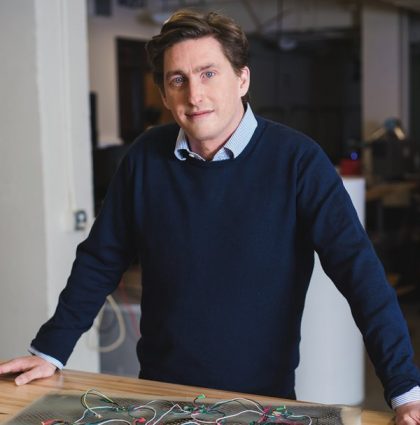
Robohub.org
Plenary and Keynote talks focus series #5: Nikolaus Correll & Cynthia Breazeal

As part of our series showcasing the plenary and keynote talks from the IEEE/RSJ IROS2020 (International Conference on Intelligent Robots and Systems), this week we bring you Nikolaus Correll (Associate Professor at the University of Colorado at Boulder) and Cynthia Breazeal (Professor of Media Arts and Sciences at MIT). Nikolaus’ talk is on the topic of robot manipulation, while Cynthia’s talk is about the topic of social robots.

|
Prof. Nikolaus Correll – Robots Getting a Grip on General Manipulation Bio: Nikolaus Correll is an Associate Professor at the University of Colorado at Boulder. He obtained his MS in Electrical Engineering from ETH Zürich and his PhD in Computer Science from EPF Lausanne in 2007. From 2007-2009 he was a post-doc at MIT’s Computer Science and Artificial Intelligence Lab (CSAIL). Nikolaus is the recipient of a NSF CAREER award, a NASA Early Career Faculty Fellowship and a Provost Faculty achievement award. In 2016, he founded Robotic Materials Inc. to commercialize robotic manipulation technology. |

|
Prof. Cynthia Breazeal – Living with Social Robots: from Research to Commercialization and Back Abstract: Social robots are designed to interact with people in an interpersonal way, engaging and supporting collaborative social and emotive behavior for beneficial outcomes. We develop adaptive algorithmic capabilities and deploy multitudes of cloud-connected robots in schools, homes, and other living facilities to support long-term interpersonal engagement and personalization of specific interventions. We examine the impact of the robot’s social embodiment, emotive and relational attributes, and personalization capabilities on sustaining people’s engagement, improving learning, impacting behavior, and shaping attitudes to help people achieve long-term goals. I will also highlight challenges and opportunities in commercializing social robot technologies for impact at scale. In a time where citizens are beginning to live with intelligent machines on a daily basis, we have the opportunity to explore, develop, study, and assess humanistic design principles to support and promote human flourishing at all ages and stages. Bio: Cynthia Breazeal is a Professor at the MIT Media Lab where she founded and Directs the Personal Robots Group. She is also Associate Director of the Media Lab in charge of new strategic initiatives, and she is spearheading MIT’s K-12 education initiative on AI in collaboration with the Media Lab, Open Learning and the Schwarzman College of Computing. She is recognized as a pioneer in the field of social robotics and human-robot interaction and is a AAAI Fellow. She is a recipient of awards by the National Academy of Engineering as well as the National Design Awards. She has received Technology Review’s TR100/35 Award and the George R. Stibitz Computer & Communications Pioneer Award. She has also been recognized as an award-winning entrepreneur, designer and innovator by CES, Fast Company, Entrepreneur Magazine, Forbes, and Core 77 to name a few. Her robots have been recognized by TIME magazine’s Best Inventions in 2008 and in 2017 where her award-wining Jibo robot was featured on the cover. She received her doctorate from MIT in Electrical Engineering and Computer Science in 2000. |
tags: c-Research-Innovation, Series




